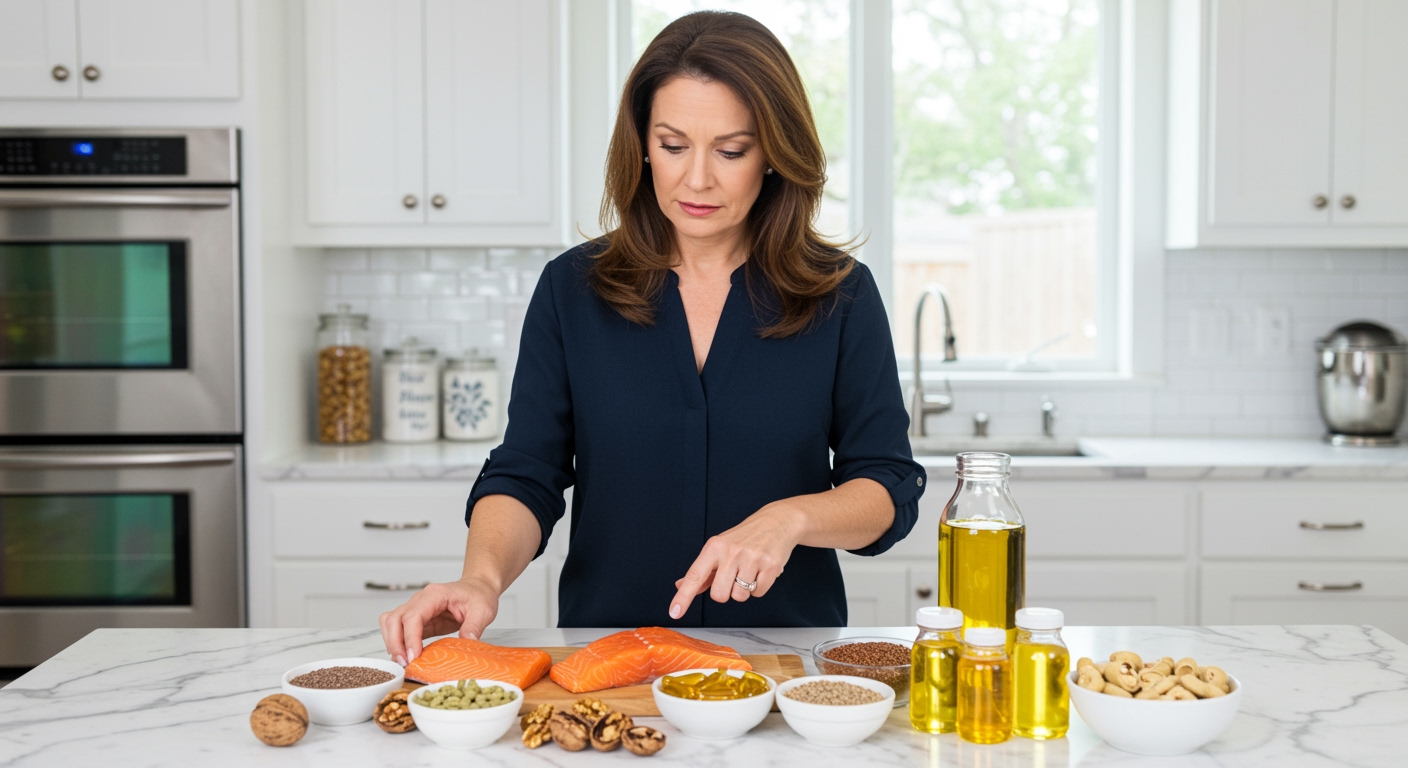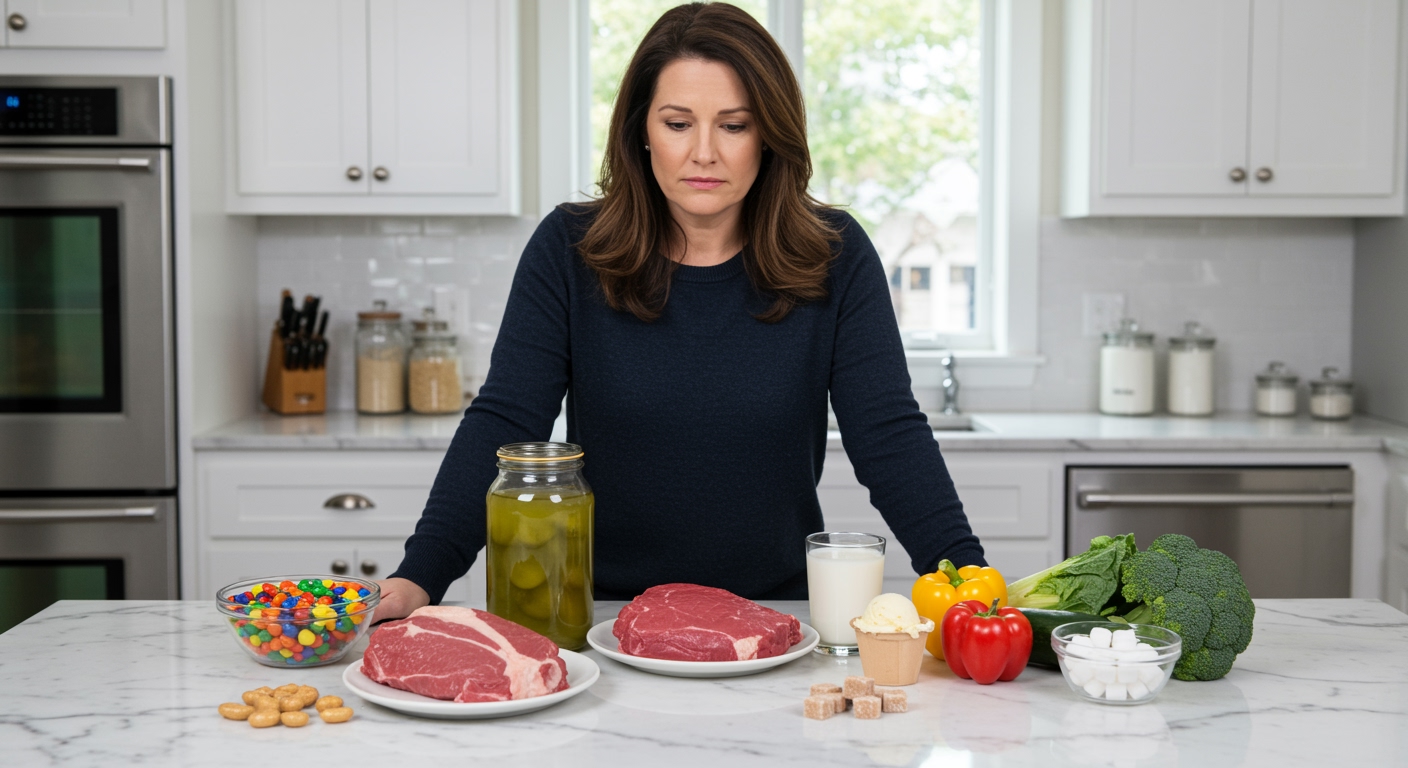✪ Key Highlight: Ultra-processed foods increase heart disease risk by 32% according to major UK study tracking 110,000 people.
Introduction
Your morning cereal, afternoon snack, and dinner ready meal might be slowly killing your heart.
A groundbreaking study published in The Lancet Regional Health – Europe has revealed that ultra-processed foods dramatically increase your risk of developing heart disease by up to 32 percent.
Hi, I’m Abdur, your nutrition coach and today I’m going to analyze this alarming research that shows how the convenience foods filling British shopping baskets are creating a cardiovascular health crisis.
What Makes This Heart Disease Study So Important?
Researchers followed more than 110,000 people in the UK for over a decade to understand the true impact of ultra-processed foods on heart health.
The results were shocking and clear.
People who ate the most ultra-processed foods had a 23 percent higher risk of developing cardiovascular disease compared to those who ate the least.
Even more concerning, their risk of coronary heart disease jumped by 32 percent.
Dr. Eszter Vamos from Imperial College London, who led the study, explained that this research provides further evidence that limiting ultra-processed food consumption could help prevent cardiovascular diseases.
The study tracked participants for such a long period because heart disease develops slowly over many years.
This extended timeline allowed researchers to see the true long-term effects of dietary choices on heart health.
✪ Fact: More than half of the average British diet now consists of ultra-processed foods.
Which Foods Are Actually Damaging Your Heart?
Ultra-processed foods are not just regular processed foods.
These products contain ingredients you would never use in your home kitchen.
Think modified starches, hydrogenated oils, artificial colors, flavors, and preservatives with names you cannot pronounce.
Common examples include ready meals, packaged snacks, sugary drinks, processed meats, instant soups, and most breakfast cereals.
Dr. Chris van Tulleken, author of Ultra-Processed People, explains that these products are designed to be over-eaten.
They drive excess calorie consumption, weight gain, and poor health outcomes.
The British Heart Foundation warns that these foods are often high in salt, sugar, and saturated fat, all of which can raise blood pressure and cholesterol.
✪ Pro Tip: Check ingredient lists and avoid products with more than five ingredients you cannot recognize.
How Do Ultra-Processed Foods Actually Damage Your Heart?
Ultra-processed foods attack your cardiovascular system through multiple pathways.
First, they contain excessive amounts of added sugars that spike your blood glucose levels repeatedly throughout the day.
This constant glucose elevation damages your blood vessel walls and promotes inflammation.
Second, these foods are loaded with unhealthy trans fats and saturated fats that directly raise your LDL cholesterol levels.
Recent research presented at the European Society of Cardiology Congress 2024 showed that a diet high in saturated fat can quickly raise blood cholesterol and liver fat, even without weight gain.
Third, the excessive sodium content in ultra-processed foods forces your kidneys to retain more water, increasing blood volume and blood pressure.
Finally, artificial additives and preservatives may trigger inflammatory responses in your body that contribute to atherosclerosis, the buildup of plaque in your arteries.
✪ Note: Inflammation is your body’s response to injury, but chronic inflammation damages your arteries over time.
What Should You Eat Instead For Heart Health?
The NHS recommends eating a diet rich in fruits, vegetables, whole grains, and healthy fats while limiting foods high in saturated fat, sugar, and salt.
Focus on whole foods that look similar to how they appear in nature.
Fresh fruits, vegetables, fish, lean meats, nuts, seeds, and whole grains should form the foundation of your diet.
Not all processed foods are equally harmful.
Some foods like canned beans, frozen vegetables, and plain yogurt can be healthy and convenient options.
The key difference is that these minimally processed foods retain their nutritional value without harmful additives.
Simple swaps can make a big difference: choose nuts instead of chips, fruit instead of candy, and home-cooked meals instead of ready meals.
✪ Pro Tip: Cooking more meals at home gives you complete control over ingredients and portion sizes.
Can Small Changes Really Make A Big Difference?
Experts emphasize that making small, sustainable changes to your diet can have a significant impact on your heart health.
You do not need to completely overhaul your diet overnight.
Start by replacing one ultra-processed snack per day with a whole food alternative.
Dr. Vamos suggests that policies and public health measures are needed to make healthier foods more accessible and affordable.
However, you can take action right now by reading food labels carefully and choosing products with fewer ingredients.
The evidence shows that even modest reductions in ultra-processed food consumption can lower your cardiovascular disease risk.
Remember, your heart health is an investment in your future quality of life and longevity.
✪ Fact: Heart disease remains the leading cause of death worldwide, but dietary changes can significantly reduce your risk.
The Bottom Line
This landmark study provides clear evidence that ultra-processed foods significantly increase your risk of heart disease and should be limited in any healthy diet.
Your food choices today determine your heart health tomorrow, so choose wisely and choose whole foods whenever possible.
I would love to hear your thoughts on this research and any questions you might have about transitioning to a more heart-healthy diet, so please share your experiences or concerns in the comment section below.
References
At NutritionCrown, we use quality and credible sources to ensure our content is accurate and trustworthy. Below are the sources referenced in creating this article:
- PubMed: Ultra-processed food consumption and cardiovascular disease risk
- PMC: Processed foods and health
- British Heart Foundation: Research reveals hidden dangers of high saturated fat diet
- NHS: Coronary heart disease prevention
- Nutrition Society: Heart disease stroke and nutrition





